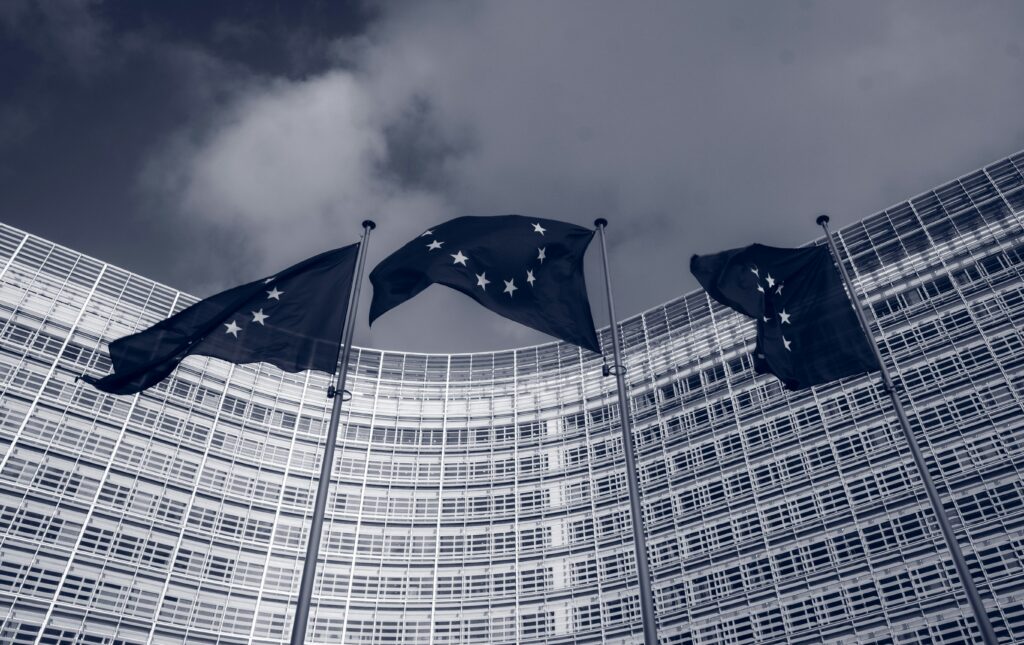At the Paris AI Summit, Ursula von der Leyen, the president of the European Commission, announced a major €200 billion investment. The goal is to boost the European Union’s position in the artificial intelligence (AI) field and compete with the United States and China.
“The AI race is far from over,” said von der Leyen. The EU aims to help European companies create AI systems to challenge the dominant players like ChatGPT and DeepSeek. This is part of the EU’s plan to become a leading force in AI innovation.
Strengthening Europe’s Position in the AI Race
Von der Leyen’s speech focused on the need for Europe to play a more active role in the global AI race. She emphasized that the EU must invest in AI technologies to stay competitive with the U.S. and China, both of which are leading the AI industry.
The new €200 billion investment will help fund AI research, development, and deployment. By investing in European companies, the EU hopes to close the gap between its tech companies and those in the U.S. and China. This move is seen as vital for ensuring that Europe remains a key player in the future of AI.
Support for Startups and Small Innovators
At the Station F startup hub in Paris, many small businesses praised the announcement. Yacine Jernite from Hugging Face, a leading AI company, said the investment will not only help big corporations but also give smaller players a chance to grow.
“The EU’s plan will create opportunities for startups,” said Jernite. “It will help them build innovative AI while following EU rules.” Many entrepreneurs believe this investment will lead to more innovation and strengthen the European AI market.
Strict AI Regulations: A Mixed Blessing
One of the key aspects of the EU’s AI strategy is its focus on regulation. The EU was the first to introduce comprehensive AI regulations through the AI Act. The goal is to ensure AI technologies are used safely and ethically. However, some experts worry that strict rules could hold back innovation.
Von der Leyen defended the regulations, saying they are necessary to ensure AI is developed safely. She argued that Europe’s approach would protect citizens’ privacy and rights while fostering innovation.
But not everyone agrees with this stance. Critics argue that Europe’s strict regulations could limit the growth of AI companies. They fear the rules might make it harder for European firms to compete with the more flexible U.S. and Chinese companies.
Global Pushback on Europe’s AI Rules
The EU’s strict approach to AI regulation has drawn criticism from outside Europe. U.S. Vice President JD Vance recently criticized the EU’s regulations, saying they could slow down innovation and limit cooperation between countries.
The U.S. and the UK also declined to sign the AI governance declaration at the Paris summit. This move shows the growing divide between Europe and the U.S. over how to regulate AI. Some argue that Europe’s regulations are too rigid and could hinder global collaboration on AI development.
European Entrepreneurs Urged to Collaborate with the U.S.
Fabian Westerheide, an AI expert, believes Europe should focus on working with the U.S. rather than isolating itself. He argued that European companies should join forces with U.S. firms to share knowledge and resources.
“The enemy is not the U.S.,” said Westerheide. “Europe’s entrepreneurs must collaborate with American companies. That’s how we’ll drive innovation and revenue.”
Westerheide’s comments highlight the need for international cooperation. He believes that Europe should not see the U.S. as a rival but as a partner in advancing AI technology.
The Future of AI in Europe: Cooperation or Competition?
As the EU rolls out its €200 billion investment plan, it faces a key challenge: balancing regulation with innovation. The EU’s strict rules may create a safe and ethical AI environment, but they might also slow down growth. At the same time, the €200 billion investment could provide a much-needed boost to the European tech industry.
For Europe to succeed in the AI race, it will need to navigate the tension between regulation and innovation. The EU’s investment plan could help European companies compete on the global stage, but it will depend on how well the EU can manage these challenges.
In the coming years, the future of AI in Europe will depend on whether European companies can innovate while respecting strict regulations. Will Europe be able to collaborate with other countries like the U.S. and China, or will it remain focused on competition? Only time will tell.
For more insights on AI developments and the latest technology trends, visit Financial Mirror.
